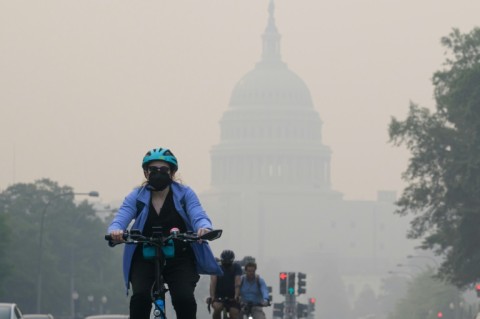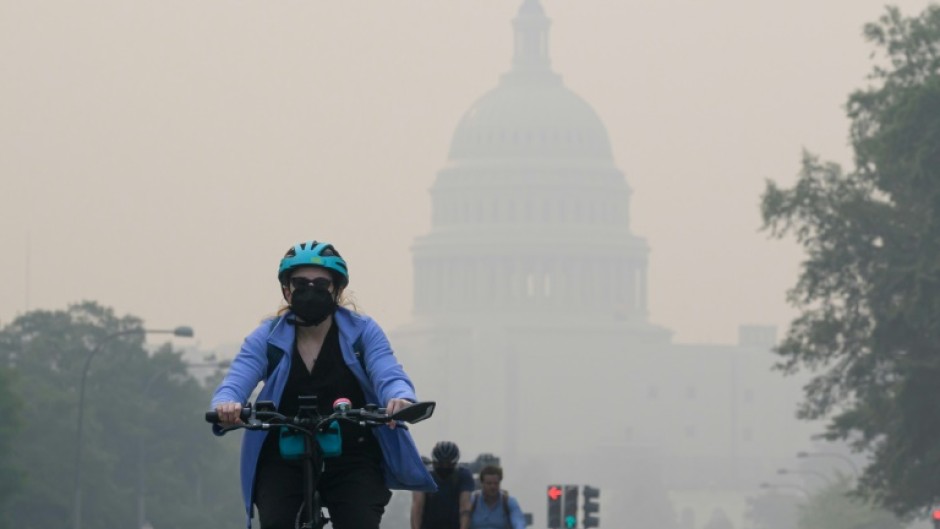
Residents of the northeastern United States were breathing more easily Friday as smoke from Canadian fires gradually cleared after blanketing several cities in a noxious haze this week.
In New York and Washington air quality was classified as "moderate" by the US Environmental Protection Agency.
In the American capital, the sky was blue again Friday morning, but as a measure of precaution, children at city public schools were still prohibited from spending recess outdoors.
In New York, public schools were closed and operated remotely.
Air quality improved after winds blowing over the Canadian province of Quebec, where the fires are raging, changed direction, Ryan Stauffer, a NASA scientist specializing in air pollution, told AFP.
The concentration of fine particles in the air was up to twenty times lower Friday morning in Washington, compared to the same time on Thursday, Stauffer said.
Thick skies and an acrid smell hung over the region for days, with air pollution exceeding some of the most contaminated cities in the world in South Asia and China.
Flights were delayed at many airports due to reduced visibility, and masks reappeared on the streets.
On Friday, some 140 fires were still active in Quebec, including nearly 80 that were deemed to be out of control. More than 13,000 people have been evacuated since the beginning of June.
Hundreds of foreign firefighters were in Canada to assist with the gigantic fires, many of which are located in remote boreal forest areas.
With nearly 900,000 hectares affected, according to official figures, Quebec is experiencing an unprecedented fire season.
"Air quality conditions have improved in NYC, but may still be unhealthy for some people," said the New York Department of Health and Mental Hygiene.
"Air quality is expected to improve over the weekend, but may vary."
Shocked by the smog, the United Nations chief, environmental organizations as well as US politicians this week stressed the need to combat climate change, which increases the risk of fires.
The mayors of New York, Montreal, Toronto, Washington and Philadelphia issued a joint-statement Friday saying "this alarming episode serves as a stark reminder of the harmful impacts that the climate crisis is having on cities around the world.
"Without drastically reducing fossil fuel use in order to at least halve our emissions by 2030 we will likely be condemning ourselves to a future filled with weeks like these."
More than 111 million people in the United States had been under air quality alerts on Thursday due to the fires. The wildfire smoke from Canada was also detected thousands of miles away in Norway.

